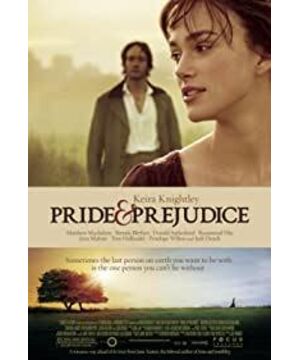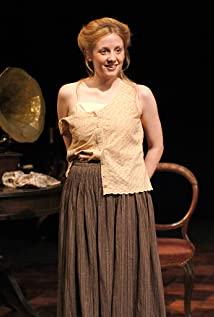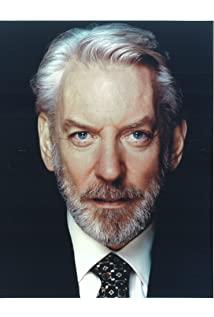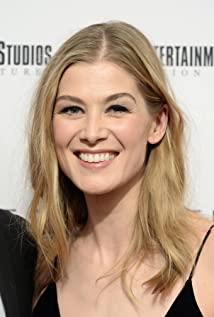I'm only married for true love, so I'm bound to be an old girl. (Only deep love will persuade me to marry, which is why I'll end up an old maid.)
Jane Austen wrote in Pride and Prejudice. Perhaps, this is also her own view of love.
------- (There are many resources, it is recommended to browse in WIFI environment) -------
Austin was born at the end of the 17th century. In that era, men's rights were in the ascendancy. In traditional ideology and code of conduct, women could only play a secondary role of submissive and male domination. So there is a scene in the movie where cousin Collins comes to propose and inherit the property of the Bennet family. Because according to the land inheritance law at the time, only males could inherit, and Mr. Bennet only had five daughters and no son.
At that time, when the marriageable age was reached, if a girl did not have an engagement partner, she should attend dance parties more, socialize actively, meet more men, and promote marriage. In modern terms, it's like a form of blind date.
Elizabeth and Mr. Darcy, Jane and Mr. Bingley, their love road is also twists and turns, hard-won. First of all, there was a huge disparity in their status and status, but at that time, they advocated a traditional concept of matching families, and aristocratic men should marry aristocratic women. While Mr Darcy and Mr Bingley were nobles, Elizabeth and Jane were of humble origins.
But Elizabeth and Jane were different from most women at the time, they had their own opinions and respected themselves. So they were one of the feminists at the time (I think they were real feminists, respecting men and respecting their rights as women, that is, gender equality, not empty feminism, which is actually a disguised form of feminism patriarchy) without compromising with the world like other women—Elizabeth’s friend Charlotte, who ended up betrothed to Collins, was a victim of the times.
Not everyone can have romance, he can give me a comfortable and safe home. I have enough to be grateful for. I'm 27 years old, I don't have it, and I don't have a future. I have become a burden to my parents. I am afraid. (Not all of us can afford to be romantic. I've been offered a comfortable home and protection. There's a lot to be thankful for. I'm 27 years old. I've no money and noprospects. I'm already a burden to my parents. And I'm frightened.)
Poor Charlotte, forced to make a living, compromised her life and married Collins, the absurd man. Elizabeth made her position clear to her, but she respected her choice, and they were still good friends and had friendly exchanges. It can be seen from this that Austin is obviously inclined to Elizabeth's attitude.
Although Mr. Darcy is rich, he is serious and serious, not good at speaking, and he is not good at communicating with strangers. Therefore, in unfamiliar situations, his appearance seems to be unhappy; and Mr. Bingley is different, he is better at dealing with strangers. He communicated with other people, so the emotional development between him and Jiying was smoother. Moreover, as a nobleman, Mr. Darcy has a somewhat superior attitude (it should be a common problem of noble men at that time), and the family's expectations, so he hesitates between the identity gap; in addition, Elizabeth's parents, especially the three sisters, have lost Because of her identity, she misunderstood Elizabeth and Jane, thinking that the marriage was for profit.
Elizabeth actually suffered a lot of grievances. One is that Darcy is like an iceberg. Even if you have the enthusiasm of the sun, it is difficult to melt that kind, and it is also a topic terminator-normal people communicate, you say a sentence, and then he answers, and talks about related things, this is the dialogue, the communication. As for Mr. Darcy, he would only answer, but would not lead to the topic. And Mr. Darcy doesn't express his opinion, which makes Elizabeth think he hates her and looks high, when in fact he clearly likes Elizabeth, because he came to this town to see her.
The second is that they are despised because of their humble status, and what is even more hateful is that the other party is still a woman. First, it was Mr. Bingley's sister, who, because of her noble status, thought the humble Elizabeth was a vulgar woman, but the situation improved later. Secondly, Darcy's aunt, Mrs. Catherine, once thought that she was seeking benefits for her nephew Darcy, and made things difficult for her.
Why is it called "Pride and Prejudice"? Where is Pride and Prejudice reflected? In fact, the film has several adaptations of the original plot. Of course, a movie of about 2 hours cannot unfold all the plots, and there must be trade-offs. Arrogance is the arrogant attitude in Darcy. In the movie, there are only two dance parties, and in the description of the movie, the two already fell in love at the first dance; in fact, in the original book, at the second dance, seeing Elizabeth's beautiful eyes, feel good. The adaptation of Darcy's attitude is actually slower than in the movie. Of course, the adaptation of the latter attitude also brings more surprises. The movie lacks a profound experience of "arrogance".
However, for prejudice, it is Elizabeth's misunderstanding of Darcy. One is the misunderstanding of Darcy himself, mainly because he is not good at expressing himself, which leads to the misunderstanding of Elizabeth by his arrogant attitude. The second is the reality of Mr Wickham's relationship with Darcy and his father. Also, Darcy himself interfered in the marriage of Bingley and Jane, and he was actually just doing his duty as a friend.
The plot of Lydia and Wickham's elopement is also relatively rushed, and personally I don't think it's very good to adapt it in one place. In the original book, Elizabeth learned about it by writing to her aunt, not Lydia herself. This is an important turning point in Elizabeth's attitude towards Darcy, but the process is not as sudden as in the movie. But in fact, the movie has explained the "prejudice" very well. After all, it is a movie, not a whole book.
Austin may have similar injustices in her life. As a woman, does she have the courage to deal with the various injustices suffered by Elizabeth? At least she wished she did. Everyone knows that Jane Austen never married, and her emotional experience was not smooth. It is said that she once fell in love with a certain man, and was close to marriage, and finally broke up for some reasons.
The love between Elizabeth and Darcy in her writing is beautiful, which more or less reflects some of Austen's own personal experience, so "Pride and Prejudice" is also Austen's autobiography to a certain extent. Sometimes because the truth is true and false, and the truth is true, the truth is hidden in the story, which can resonate even more. I don't know if it's the years that have smoothed out the edges and corners of the injury, or the heavy makeup of the memory, and the rest is beautiful.
------- Serious spoiler divider (lots of GIFs and screenshots) -------
View more about Pride & Prejudice reviews











